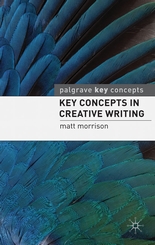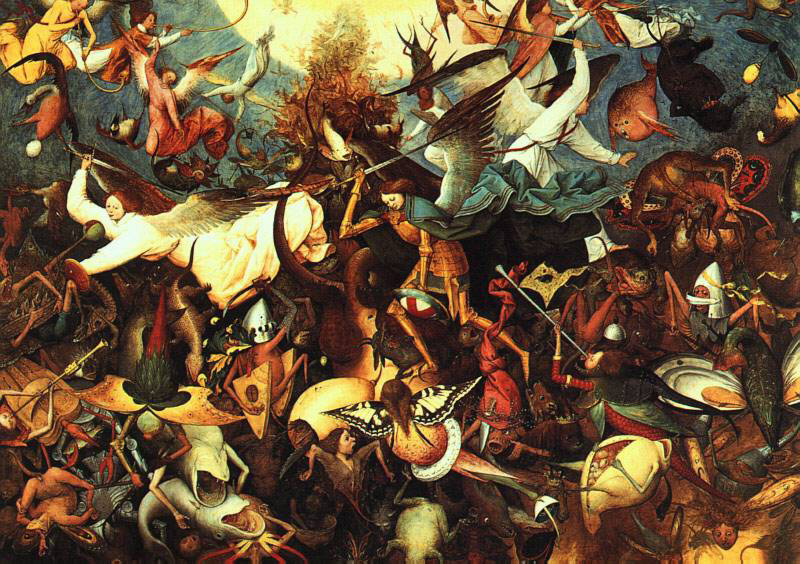-
Architecture
archive
art
Ballard
body
China
cinema
ecology
education
Europe
Ezra Pound
futurology
gothic
image
law
Literature
London
magic
memory
Modern
Modernism
museums
music
novel
performance
photography
poetry
politics
radical philosophy
science
science fiction
Sinclair
Situationism
sound art
Surrealism
technology
television
the avant-garde
The Future
Theory
thomson
time
Urban
visual culture
war
Posts tagged Literature

Money, Time, Representation: Literary Explorations (CFP)
In his Philosophy of Money, Georg Simmel notes that “we invest economic objects with a quantity of value as if it were an inherent quality” but “the question as to what value really is, like the question as to what being is, is unanswerable”. The element of unaccountability in money can also be seen in Marx, although he articulated the nature of money quite differently as an expression of social relations. Literature has always been very sensitive to the contingent, hence fictional, aspect of money.
A proposed session is planned on the topic for the IAPL (International Association for Philosophy and Literature) 2012 conference Archaeologies of the Future: tracing memories/imaging spaces to be held in Tallinn, Estonia next spring. We are looking for papers where the nature of money is explored in literature, and papers that ask how and if money in literature is the same as money in philosophy. The issues can include, but are not limited to, the nature of money as representation of value, or as representation of authority, or the role of money as an expression of a temporal pact that affects our sense of time. If you are interested in the topics of money in literature and/or money in philosophy, or parallels between writing and money, please send in your abstract ASAP (max. 1000 words) to the email address below. The session can include four to five speakers. Please note that all speakers must be IAPL members by the end of September 2011. For more details, see: www.iapl.info
Dr Tiina Käkelä-Puumala, University of Helsinki, Finland
email: tkakela@mappi.helsinki.fi
Register now for New Ways of Working with Image, Sept 14 2011
Tagged as art, image, Literature, visual culture

‘New Ways of Working with Image’ Seminar and Workshop
Wednesday 14 September 2011, 11.00am – 4.30pm
Room 257, University of Westminster, 309 Regent Street, London W1B
Update: Schedule Announced:
11.00 welcome and introductions (RS257)
11.15 opening panel (Jesse Ash, Andrew Fisher, Elena Gualtieri, Nigel Mapp)
12.30 lunch
13.30 workgroups (chairs)
Image and Performance (Marquard Smith)
Imagescapes (David Cunningham)
Imaginary Image (Jarkko Toikkanen)
Remediating Image (Lise Mortensen)
15.00 coffee
15.30 closing discussion
How do we understand ‘image’ today, and how has our notion of the image changed over time? What is the status of the image in current theory, and how does the study of image translate into visual culture? In which ways do words and verbal communication relate to or conflict with images? Do we work differently with images today, compared to the practices of previous generations? And if we do, why? Questions such as these underlie the Institute’s autumn Workshop which focuses on a practical, hands-on angle approach to working with image today.
Participants in this experiment are invited to discuss what they understand by the notion of ‘image’ and which methods they have chosen to work with it. Instead of discussing general themes and motifs without knowledge of each other’s premises, talking about what one does, and how one does it, reduces the chance of conceptual miscommunication and provides the opportunity for learning from new viewpoints. Interested academics, scholars and postgraduate students in particular are all invited to attend!
The format of the day will be an interactive opening panel of invited speakers from art history, photographic theory, visual culture, philosophy and literary studies reflecting on their own approaches to the image in both disciplinary and transdisciplinary terms, followed by smaller group workshop sessions open to signed-up members of the audience, and concluding with general discussion. Individual workshop themes will include: (1) Image and Performance: on the nature and role of images in and as performance; (2) Imagescapes: what kinds of scenes and spaces images form and come to interact in; (3) Imaginary Image: how images condition and affect the reading experience; (4) Remediating Image: the slide and change of images between different semiotic modes.
Confirmed panel participants and workshop chairs include: David Cunningham (IMCC, Westminster), Andrew Fisher (Visual Culture, Goldsmiths College), Elena Gualtieri (Centre for Visual Fields, Sussex), Nigel Mapp (English Literature, Westminster), Lise Majgaard Mortensen (Aarhus University/IMCC), Marquard Smith (IMCC, Westminster), Jarkko Toikkanen (University of Tampere/IMCC).
This workshop is free and convened by our Visiting Research Fellows in the Institute, Lise Majgaard Mortensen and Jarkko Toikkanen. For further information or to reserve a place (numbers are strictly limited!), please email Jarkko at: Jarkko.Toikkanen@uta.fi
Materialities of text online conference
Tagged as archive, Literature, technology, Theory

Materialities of Text: Between the Codex and the Net
An Online Conference, from October 24th – November 4th 2011.
Remit:
The book, in its traditional codex form, appears in transition from print media to digital media; a condition nevertheless complicated by its forms of survival, as indicated by the term ‘webpage’. Despite the epochal significance of the scroll, the codex, and the digital text, such material figures of inscription are necessarily hybrid; a hybridity that especially characterises the current historico-technical relation between print and digital media. Hybridity, of course, has been championed, for example, in postcolonial studies, as a figure of subversion, but it is also clear that hybrid text, as much as it is an object of possible democratisation within the digital public sphere, is also an object of intense capitalisation. Thus, the apparent waning of the hegemony of print is drawing questions of the politics of textual materialism into critical perception, and the need to interrogate the specificity of these materials, in their complex relations to the sensual form of paper and the ‘dispersed’ textuality of the digital medium. What, then, are the new materialities of hybrid text-media? What are the politics of digital/print hybrids, artists’ books, writing technologies, and digital publishing? How does media hybridity transform the political book, the artists’ book, or the work of literature? What effects do new materialities of text have on patterns of reading? Has media process replaced the media object? What are the sensory forms of new media materialities? How is the commodity-form of the book altered by new media platforms? What are the conditions and forms of specific media hybridities? What does new media do to the ‘perversions’ of the book – to bibliomania, to fetishism? Are we still ‘people of the book’ – what remains of the authority of the book? How has independent publishing responded to new materialities of text? What might figures of the book offer in the way of new or counter-knowledges, forms of community and communication?
Platform / Participants:
In keeping with its theme, the project will centre on an online conference, held on this website, which will allow the uploading of short texts and images, and user-generated commentary and debate. The organisers invite responses to texts and related questions from thinkers in all disciplines: literary-cultural studies, art-practice, critical theory and philosophy, book and publishing history and practice, etc.
Abstracts of included texts: Janneke Adema & Gary Hall (Coventry University): ‘(Im)materialities of Text: The Book as a Form of Political & Conceptual Resistance in Art and Academia’; Richard Burt (University of Florida): ‘Shelf-Life’; Johanna Drucker (UCLA): ‘Diagrammatic Writing’; Davin Heckman (Siena Heights University): ‘The Politics of Plasticity: Neoliberalism, Deliberation & the Digital Text’; Sas Mays (University of Westminster) ‘Mnemopolitics: Philosophy & the Archive in the Digital Public Sphere’; Daniel Selcer (Duquesne University): ‘Invisible Ink: Atomizing Textual Materialism’; Nick Thoburn (university of Manchester): ‘Materialities of Political Publishing’.
The organisers – Sas Mays (IMCC, Westminster) and Nick Thorburn (Manchester) – intend this forum to allow discussion that may be included within the second form of dissemination, and may feed into contributors’ articles within it: a special issue of the journal New Formations to be published in 2012.

An early heads up on the line up of speakers and list of dates for next year’s first semester series of English Literature and Culture seminars. All will take place from 1.15-2.30pm on Wednesday lunchtimes in the University’s Regent Street building (room 359).
12th October 2011
Helen Glew (History Project, University of Westminster)
“Women at the Regent Street Polytechnic, 1882 – 1945”
26th October 2011
Anna Katharina Schaffner (University of Kent)
“Havelock Ellis and the Literary Imagination: On Sexology and Fiction”
9th November 2011
Caroline Edwards (Surrey University)
“Fictions of the Not Yet”
23rd November 2011
Samuel Thomas (Durham University)
“The Gaucho Sells Out: Thomas Pynchon, Nation Building & Argentina”
Further details at: http://seminarserieswmin.wordpress.com/

We are happy to announce the most excellent news that Michael Nath’s debut novel La Rochelle, for which we helped to organise the official launch in 2009, is one of four books shortlisted for the prestigious the James Tait Black Memorial Prize for fiction. The shortlist was announced at Dover House, London. The winners will be announced at the Edinburgh International Book Festival in August.
The James Tait Black Award, worth £10,000 to the winner, is awarded annually by the University of Edinburgh’s School of Literatures, Languages and Cultures, and were founded in 1919 by Janet Coats, the widow of publisher James Tait Black, to commemorate her husband’s love of good books. Past winners of the awards include the likes of DH Lawrence, Graham Greene, Evelyn Waugh, Muriel Spark, Angela Carter, Cormac McCarthy, Martin Amis, AS Byatt, William Golding and Ian McEwan.
Representation of Financial Crises seminar
Tagged as economics, Literature
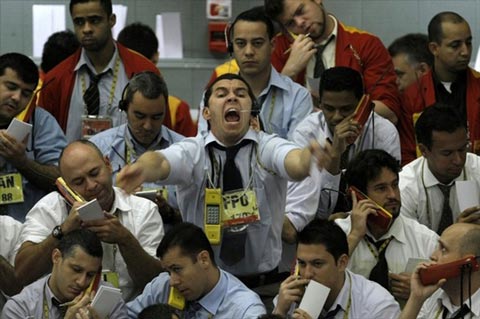
Wednesday 23rd March 2011, 1.15-2.30pm
Room 106, University of Westminster, 32-38 Wells Street, London W1T 3UW
Paul Crosthwaite (Cardiff University)
“Like a Flood or an Earthquake: Trauma and the Representation of Financial Crises”
Further details on the English Literature and Culture research seminar series here.
The intermedial experience of horror
Tagged as gothic, Literature, Theory

Wednesday 9 February 2011, 1.15-2.30pm
Room 106, University of Westminster, 32-38 Wells Street, London W1T 3UW
Jarkko Toikkanen (Visiting Research Fellow, IMCC)
“Suspended Failures: The Intermedial Experience of Horror”
Our new Visiting Research Fellow will be presenting a ‘promo’ for the research project on horror that he will be carrying out at the Institute this year. He has suggested that participants might like to read Robert Frost’s poem ‘The Fear’ in advance of the seminar. An online copy can be found at: http://www.bartleby.com/118/14.html
Further details on the English Literature and Culture research seminar series here.

There is now a complete list of dates and paper titles for this semester’s series of English Literature and Culture seminars. All will take place from 1.15-2.30pm on Wednesday lunchtimes in room 106 in the University’s Wells Street building:
9th February 2011
Jarkko Toikkanen (Visiting Research Fellow, IMCC)
“Suspended Failures: The Intermedial Experience of Horror”
23rd February 2011
Nick Barnett (Liverpool John Moores)
“No Defence against the H-bomb: Popular reactions to the Thermonuclear Era”
9th March 2011
Samuel Thomas (Durham University)
“The Gaucho Sells Out: Thomas Pynchon, Nation Building & Argentina”
23rd March 2011
Paul Crosthwaite (Cardiff University)
“Like a Flood or an Earthquake: Trauma and the Representation of Financial Crises’”
Further details at: http://seminarserieswmin.wordpress.com/
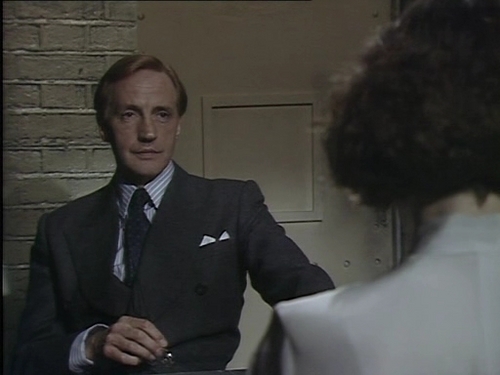
Wednesday 1 December 2010, 4.15-5.45pm
Room 306, University of Westminster, 32-38 Wells Street, London W1T 3UW
Siobhan Chapman (University of Liverpool)
‘Implicated Meanings in Dorothy L. Sayers’s Gaudy Night: a Neo-Gricean Approach’
Research Seminar: Martian Astronomy…
Tagged as Literature, science fiction

Wednesday 24 November 2010, 1.15-2.30pm
Room 106, University of Westminster, 32-38 Wells Street, London W1T 3UW
Martin Willis (University of Glamorgan)
‘Martian Astronomy and Popular Fiction’
Further details on the English Literature and Culture research seminar series here.
Monday 29 November 2010, 6.30pm
The Foyer, University of Westminster, 309 Regent Street, London W1B
The Department of English, Linguistics and Cultural Studies at Westminster is holding a wine reception to celebrate the publication of a plethora of new books, many of which have been publicised already on this site: new books on creative writing and on Scottish women’s gothic by Matt Morrison and Monica Germana, respectively; the collection London Gothic, co-edited by Anne Witchard; and new editions of Mary Coleridge’s poetry and Mona Caird’s The Wing of Azrael by Simon Avery and Alexandra Warwick.
If you’d like to attend email Sharon Sinclair at: sinclas@westminster.ac.uk
Science Fiction and Mass Observation
Tagged as Literature, Modernism, novel, science fiction
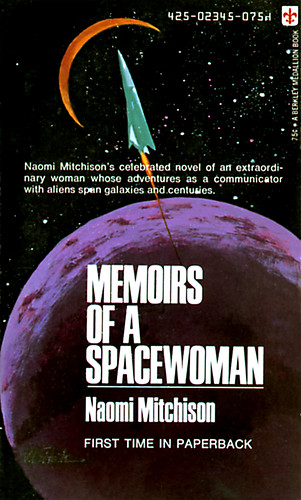
Wednesday 27th October, 1.15-2.30pm
Room 106, University of Westminster, 32-38 Wells Street, W1T 3UW
Nick Hubble (Brunel University)
‘Naomi Mitchison: From Intermodernism to Science Fiction (via Mass-Observation)’
From her 1920s novels, influenced by Lawrence but aimed at the audience of Wells, to her subsequent deployment of modernist techniques for political ends, Naomi Mitchison may be considered a key intermodern writer. Her relentless pursuit of the ‘just society’, free from gender-based and sexual repression, made her a controversial figure even in that controversial decade. And her close literary associates of that decade – including Auden, Aldous Huxley, Olaf Stapledon, Stevie Smith, Wyndham Lewis and Walter Greenwood – suggest different ways of thinking about literary networks and cultural history in general. She was also a friend and supporter of Tom Harrison and Mass-Observation, for whom she kept a wartime diary. Nick Hubble’s paper analyses this intermodern work and investigates how it relates to Memoirs of a Spacewoman (1962), a forerunner of the 1970s feminist utopian science fiction of writers such as Ursula Le Guin, Marge Piercy and Joanna Russ.
Rescheduled from last semester. Further details here.
Modernism lives
Tagged as art, Literature, Modernism, novel

Excellent guest blog by our own Michael Nath at Exclusively Independent about Gabriel Josipovici’s Whatever Happened to Modernism? and the media fuss that it’s generated:
“Professor Josipovici argues that the English novel has become caged in recent decades, and that its famous practitioners have been putting on a tame show, for all their swaggering. This has annoyed the literary reviewers and metropolitan columnists, who’re in the habit of making a fuss of certain big names, and don’t appreciate being told they’ve been cheering cows; but it happens to be true. The ranking writers and the prize-winners make it solely because the idea has caught on that ‘Modernism is dead’; the consequence of this is that contemporary writing can prowl about quite safely in its cage, or not prowl at all but just peep through its fingers.”
Read more here. And while you’re at it, check out David Cunningham’s review of Nicolas Bourriaud’s Altermodern exhibition in a recent issue of the Journal of Visual Culture. The defence of modernism begins here!

Another day another new book from an IMCC associate. We’re delighted to announce the publication of Monica Germana’s first book, Scottish Women’s Gothic and Fantastic Writing, from Edinburgh University Press.
The book considers four thematic areas of the supernatural – quests, dangerous women, doubles and ghosts – each explored in one of the four main chapters. Being the first critical work to bring together contemporary women’s writing and the Scottish fantasy tradition, the volume pioneers in-depth investigation of some previously neglected texts such as Ali Smith’s Hotel World; Alice Thompson’s Justine; Margaret Elphinstone’s longer fiction, as well as offering new readings of more popular texts including A.L. Kennedy’s So I am glad, Emma Tennant’s The Bad Sister and Two Women of London. Underlying the broad scope of this survey are the links – both explicit and implicit – established between the examined texts and the Scottish supernatural tradition.
IMCC member Matt Morrison’s book, Key Concepts in Creative Writing, is published by Palgrave this week – a comprehensive writers’ guide to the terminology used across the creative writing industries and in the major literary movements. Packed with practical tips for honing writing skills and identifying opportunities for publication and production, it also explains the workings of publishing houses, literary agencies and producing theatres.
There is now a complete list of dates and paper titles for this semester’s series of English Literature and Culture seminars. All will take place from 1.15-2.30pm on Wednesday lunchtimes in room 106 in the University’s Wells Street building:
27th October 2010
Nick Hubble (Brunel University)
“Naomi Mitchison: From Intermodernism to Science Fiction (via Mass-Observation)”
10th November 2010
Joanne Murray (Birkbeck College, University of London)
“JG Ballard and New Brutalism”
24th November 2010
Martin Willis (University of Glamorgan)
“Martian Astronomy and Popular Fiction”
8th December 2010
Stephen Ross (University of Victoria, Canada)
“Ghostmodernism and Ethics”
Further details at: http://seminarserieswmin.wordpress.com/

Chris Daley and Jo Wargen have set up a useful new wordpress site for the Wednesday lunchtime English Literature Research Seminars run by the Department of English, Linguistics and Cultural Studies at Westminster. The address is: http://seminarserieswmin.wordpress.com/
Check next semester for details of upcoming seminars.
Iain Sinclair talk
Tagged as Literature, London, Sinclair, Urban
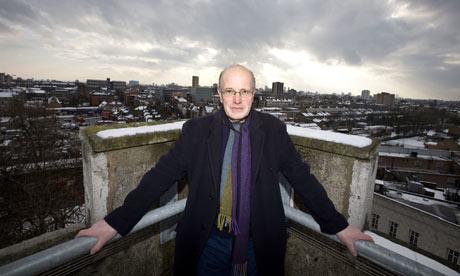
Thursday 4th March, 6pm
The Boardroom, University of Westminster, 309 Regent Street, W1B 2UW
In the first of a new series of talks at Westminster entitled 21st Century London, exploring the challenges and opportunities the city offers to the contemporary writer, Iain Sinclair will be in conversation with David Cunningham, Deputy Director of the IMCC. Future speakers will be Toby Litt (March 11), Diran Adebayo (March 18) and visiting research fellow at the Institute Rachel Lichtenstein (April 22).
For more information, please email Monica Germana at m.germana@westminster.ac.uk. Events are free of charge, but booking is essential: please email Sharon Sinclair at sinclas@wmin.ac.uk to book a place.
Wednesday 24th February, 1.15-2.30pm
Room 106, University of Westminster, 32-38 Wells Street, W1T 3UW
Nigel Mapp (University of Tampere, Finland)
‘Milton, Life, Heresy’
Free to all.
The Portrait and the Novel
Tagged as Literature, novel, portrait, visual culture

Wednesday 24th February, 4.15pm
Room 106, University of Westminster, 32-38 Wells Street, W1T 3UW
Joe Bray (University of Sheffield)
‘Conceptual Metaphor and the Language of the Early Nineteenth-Century Portrait’
Hosted by our colleagues in Westminster’s English Language and Linguistics section, Joe Bray examines the meanings generated by frequent references, both literal and metaphorical, to the portrait in the early nineteenth-century novel. As critics have noted, the late eighteenth and early nineteenth-century novel drew on a well-developed cultural understanding of the portrait-novel connection, and this is particularly true of the novels analysed in this paper: Maria Edgeworth’s Belinda (1801) and Jane Austen’s Emma (1816). Each novel is extensively permeated by a metaphor of the countenance, or in some cases the whole body, as a painted portrait. The mapping involved would seem to create a ‘blended space’ which suggests that the emotions on the face can be easily read and understood, and thus that the body serves as a reliable index to ‘character’. Yet the implications of transparency and legibility that the metaphor of the painted countenance evokes are challenged in various ways in each novel.
Free to all.


The Institute for Modern and Contemporary Culture
University of Westminster Department of English, Linguistics and Cultural Studies
32-38 Wells Street, London W1T 3UW. United Kingdom.

